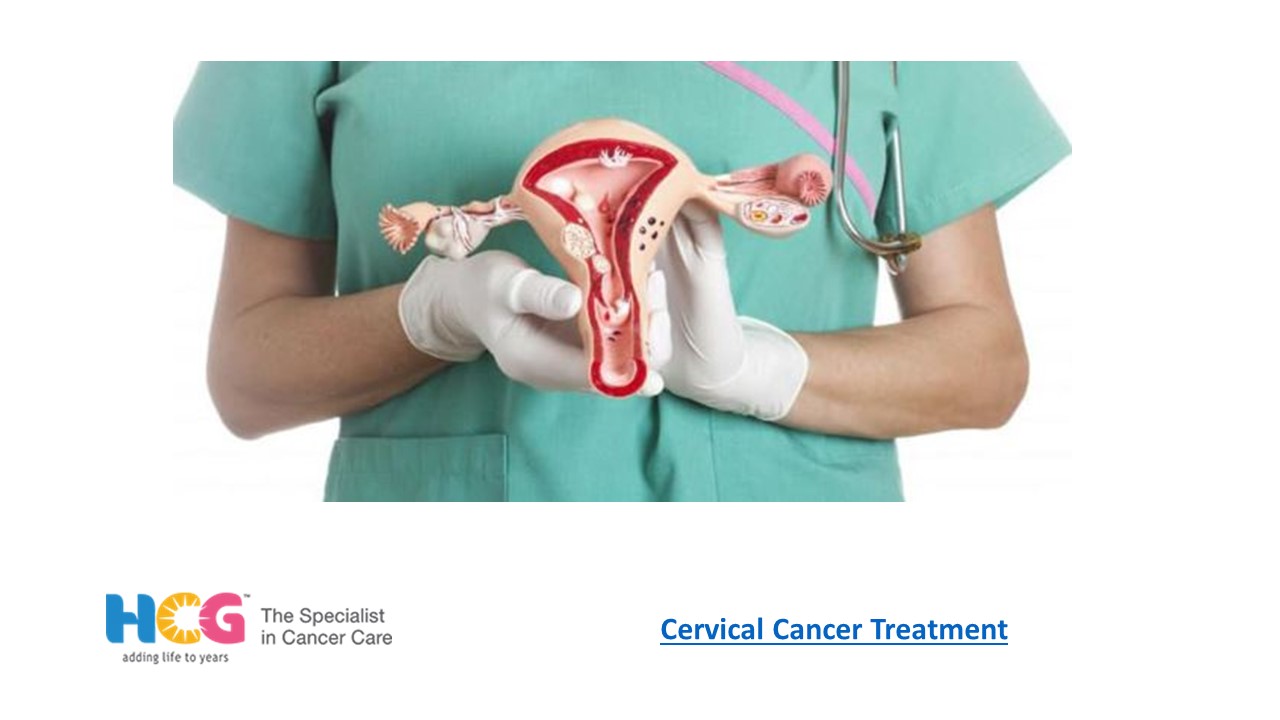Cervical Cancer and its Treatment Options - PowerPoint PPT Presentation
Title:
Cervical Cancer and its Treatment Options
Description:
Cervical cancer is a serious health concern, but with early detection and the right treatments, individuals can fight back against the disease. With proper screening, women and their healthcare providers can catch cervical cancer in its earliest stages and work together to develop an effective treatment plan that will give them the best possible outcome. Using world-class equipment and an expert team, HCG provides one of the best cancer treatments. – PowerPoint PPT presentation
Number of Views:4
Title: Cervical Cancer and its Treatment Options
1
Cervical Cancer Treatment
2
(No Transcript)
3
A Look at Cervical Cancer and its Treatment
Options
Cervical cancer is a type of cancer that affects
the cells lining the cervix, which is the end of
the uterus. In most cases, cervical cancer is
caused by a virus called Human Papillomavirus
(HPV). The most common type of cervical cancer is
squamous cell carcinoma, which begins in the
thin, flat cells lining the cervix.
Adenocarcinoma, which begins in the glandular
cells, is the second most common type of cervical
cancer. While cervical cancer is highly
preventable through regular screenings and
vaccines, it is still one of the leading causes
of death among women around the world. In this
blog post, we will take a look at cervical cancer
- its symptoms, diagnosis methods, and cervical
cancer treatment options.
4
- What are the Symptoms of Cervical Cancer?
- The most common symptom of cervical cancer is
abnormal bleeding. This may include - Unusual bleeding, such as in between periods,
after sex, or after menopause - Vaginal discharge that looks or smells different
than usual - Pain in the pelvis
- Urge to urinate more often
- Pain during urination
- If cancer has spread to other parts of the body,
additional symptoms may include - Fatigue
- Weight loss
- Bone pain
5
- What are the Treatment options for Cervical
Cancer? - There are a few different ways for cervical
cancer treatment, and the method used will depend
on how far along the cancer is. - LEEP (loop electrosurgical excision procedure)
- If the cancer is caught early, a cone biopsy or
LEEP procedure may be all that is needed to
remove the cancerous tissue. - Hysterectomy (removal of the uterus)
- A hysterectomy, which involves removing the
uterus surgically, may be required if cancer has
spread. - Chemotherapy
- For ovarian cancer, chemotherapy is typically
delivered orally (by mouth), intravenously
(through a vein) or directly into the abdomen
through a catheter, in a treatment called
intraperitoneal chemotherapy. - Hormone therapy
- Hormone therapy deprives ovarian cancer cells of
the hormones they need to grow, including
estrogen. - Targeted therapy
- Targeted therapy drugs called PARP inhibitors,
which are designed to stop tumor cells from
repairing themselves, are often used to treat
ovarian cancer.
6
Contact us
Registered Office HCG Tower No. 8, P Kalinga Rao
Road, Sampangi Rama Nagar, Bengaluru 560 027,
Karnataka, India 91 80 4660 7700
- 7406499999
- info_at_hcgoncology.com
7
THANK YOU































